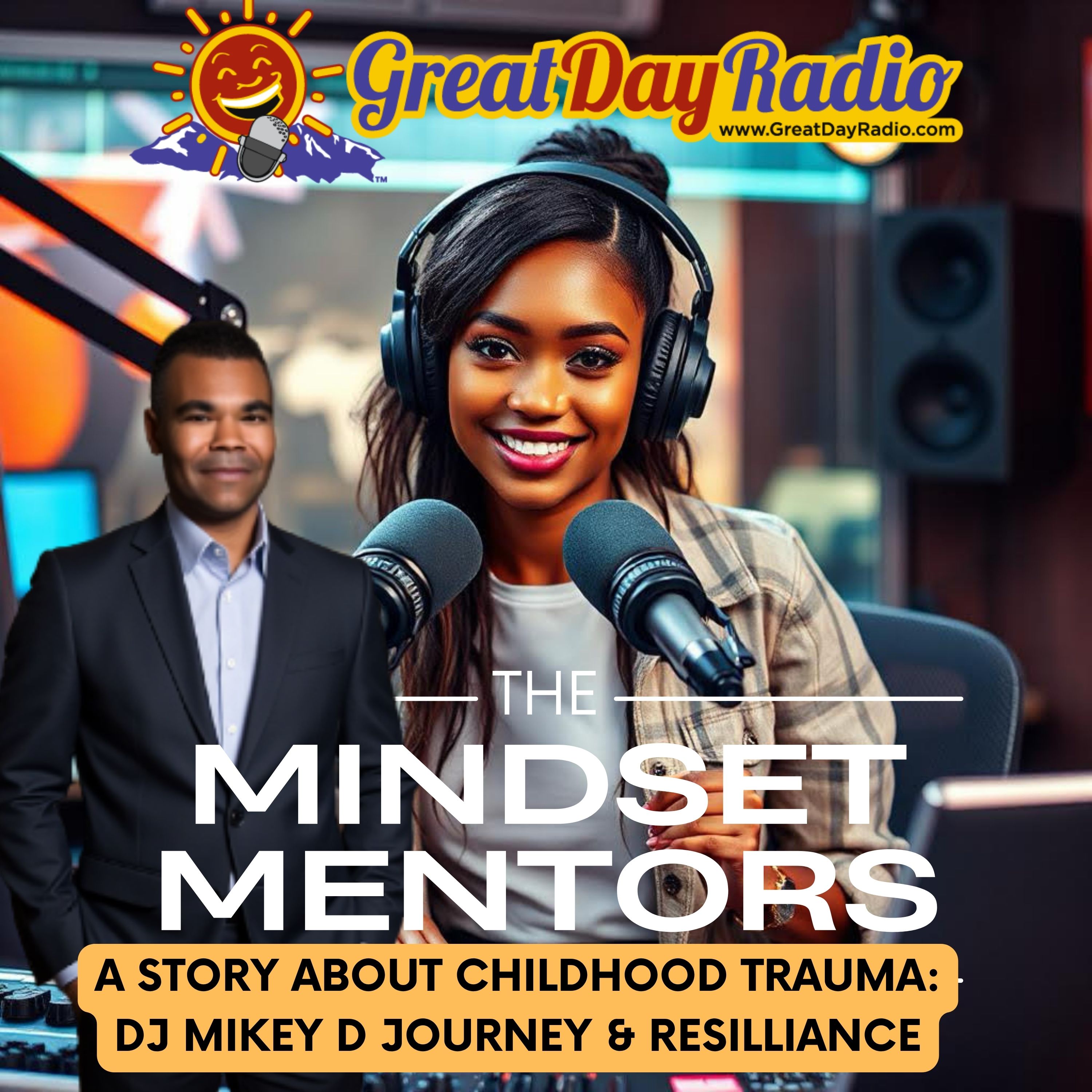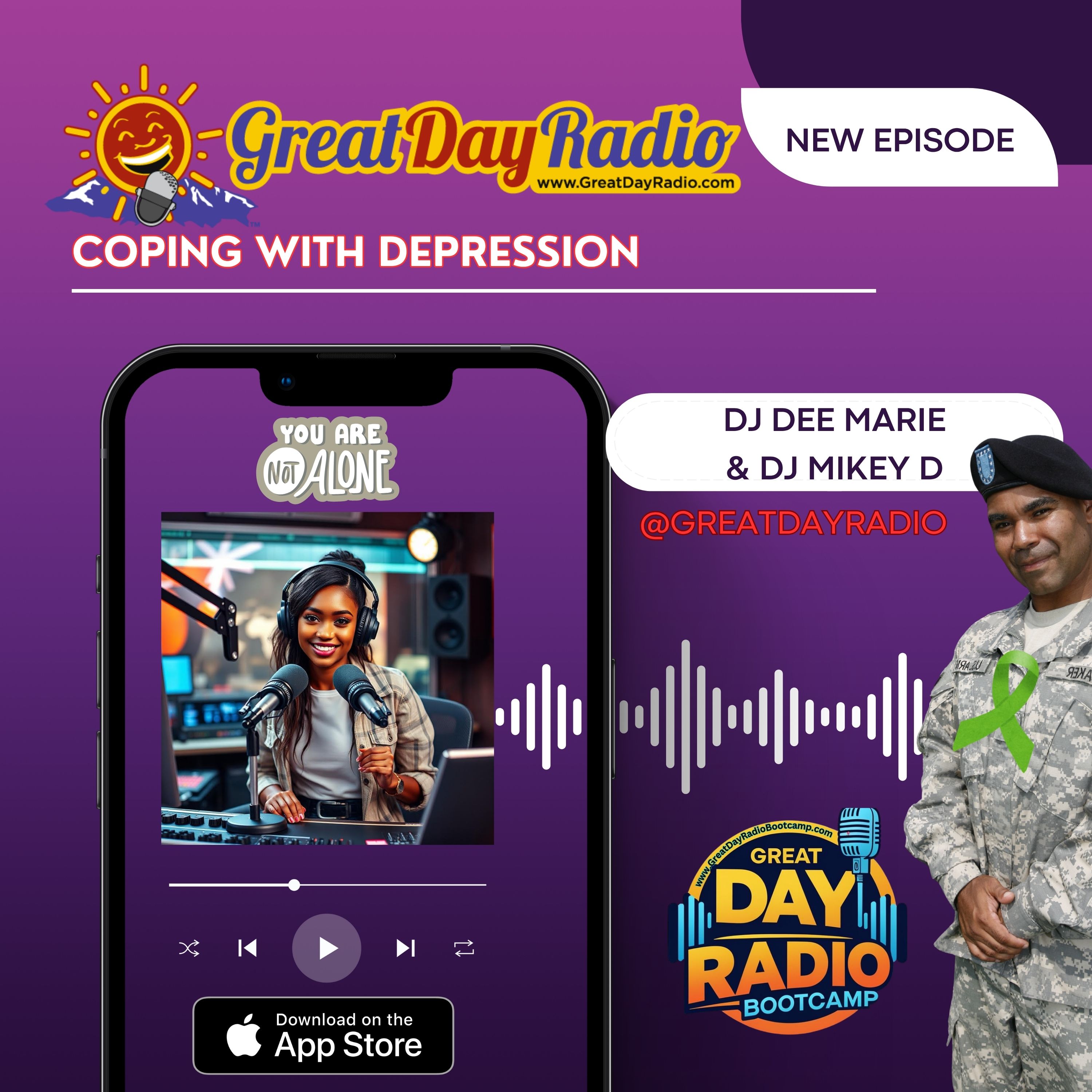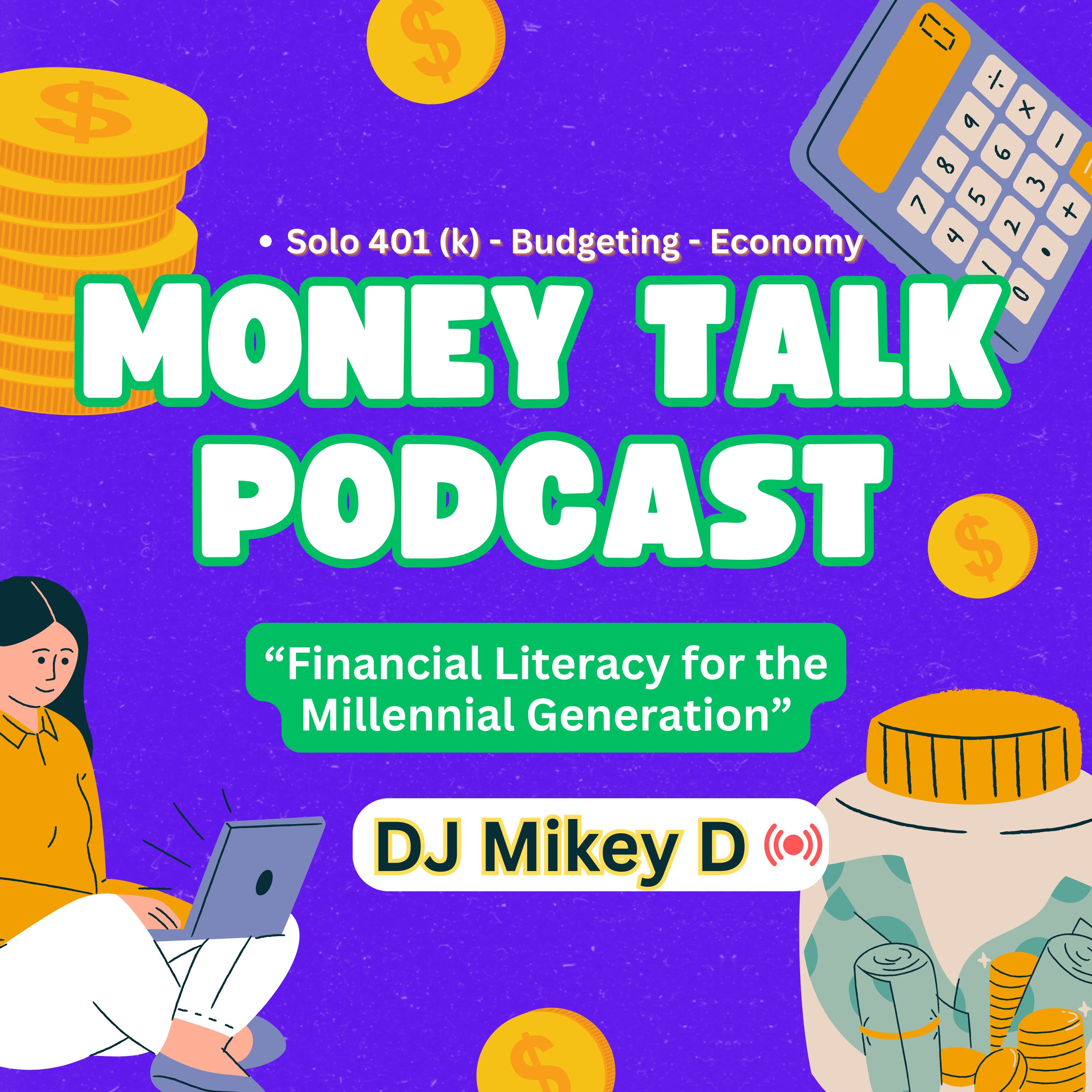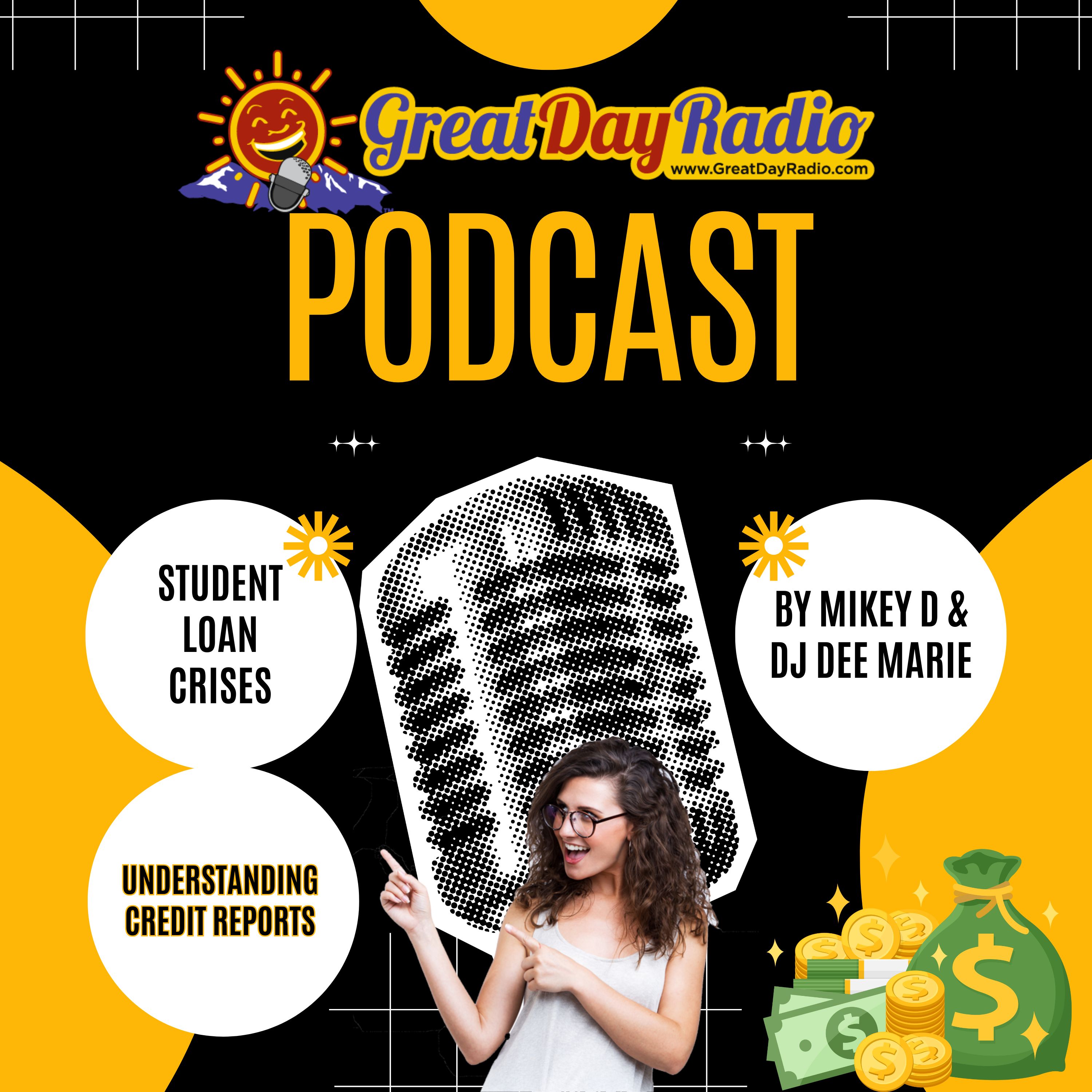
A Survivor's Musical Journey from Trauma to Triumph
Music doesn't just entertain—it heals. Listen to Mikey D's remarkable story of how DJing became his language for processing childhood trauma and military PTSD. A powerful reminder that our deepest wounds can become our greatest strength. #MusicAsTherapy #HealingJourney
Music as therapy is often dismissed as merely metaphorical, but the science behind how rhythm and melody can rewire trauma responses in the brain is compelling and real. Great Day Radio's recent episode featuring DJ Mikey D delves into this fascinating intersection of neuroscience and healing, presenting a powerful narrative of survival, resilience, and transformation through musical expression.
The episode explores how childhood instability—specifically growing up with constant displacement, moving from city to city with a single father—creates profound vulnerability. Research indicates children in these situations are five times more likely to develop anxiety and depression. For Mikey D, music became both anchor and lifeline during these turbulent early years. From age six onward, discovering DJing provided him with a unique language for processing pain. This isn't just anecdotal; studies demonstrate that engaging with music triggers dopamine release while reducing cortisol levels, essentially providing a natural neurochemical antidote to trauma's physiological effects.
What makes Mikey's story particularly compelling is how he intuitively built a diverse therapeutic toolkit through different musical genres. Blues gave voice to grief, funk provided joy and release, while hip-hop offered a platform for storytelling and processing trauma. Each genre served a different emotional purpose, creating what amounts to a self-directed form of cognitive behavioral therapy through rhythm and sound. This approach becomes even more significant when considering the additional layers of trauma Mikey processed from military service. The statistics mentioned in the podcast are sobering: approximately 20% of veterans from Middle East conflicts develop PTSD, and veterans with childhood trauma are three times more likely to develop severe symptoms.
Perhaps the most powerful aspect of the episode is Mikey's brave disclosure about his childhood sexual abuse. From ages 2 to 7, he was molested by people his father considered close friends, including family members. Unable to trust or be believed, young Mikey turned to storytelling as a way to cope and signal his distress to the outside world. This revelation adds profound depth to understanding how his intuitive turn toward music represented not just entertainment but survival.
Recent research from the VA shows that creative expression therapies can reduce PTSD symptoms by up to 40%, suggesting that Mikey's intuitive use of music as therapy was actually ahead of the clinical curve. The ripple effects extend beyond personal healing—communities with strong artistic outlets show a 30% higher rate of engagement with mental health services. Music becomes a gateway to broader healing, particularly in communities where mental health support has traditionally been stigmatized.
The episode concludes with a powerful message: trauma survivors who become advocates help reduce stigma in their communities by up to 40%. Mikey's journey demonstrates how personal healing can transform into community impact, with research showing that community-based healing approaches are twice as effective as individual therapy alone. His story provides not just inspiration but a blueprint for collective healing through creative expression, challenging us to rethink conventional approaches to trauma treatment.
"Trauma doesn't have to define us." Discover how one DJ transformed childhood abuse and military trauma into a force for community healing. Science confirms: creative expression can reduce PTSD symptoms by 40%. Listen to this life-changing episode now.
Great Day Radio Sources:





